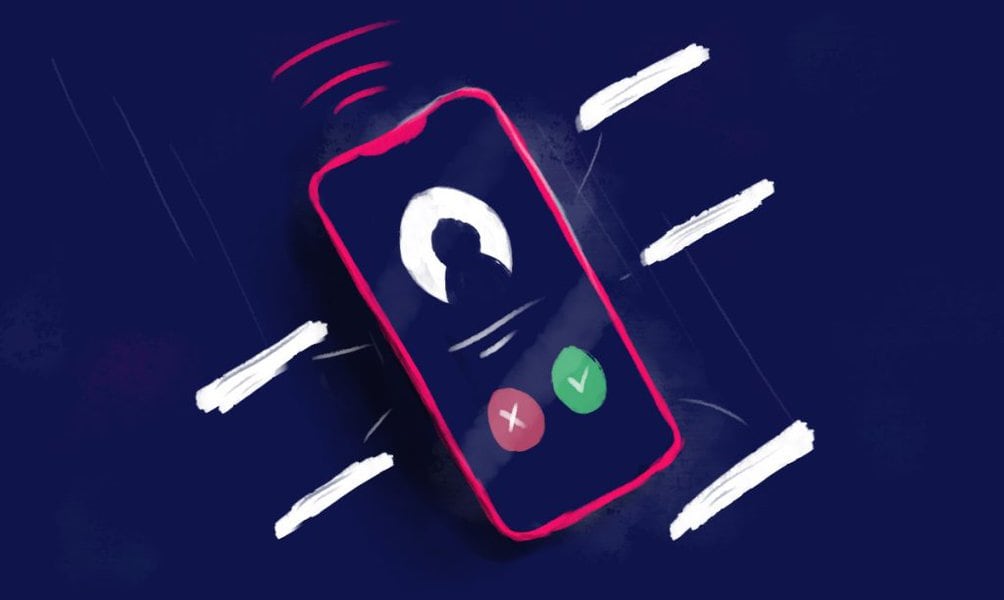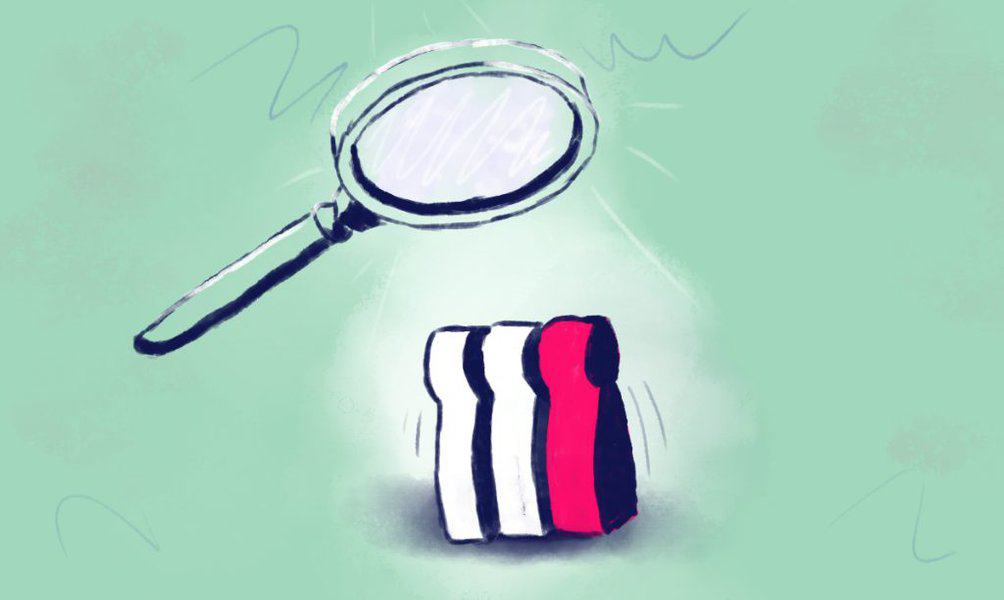In the digital era, one crucial element of a good customer service strategy is a live chat feature on your website and other communication channels. ...
5 Tips For a Successful Consultation Call
Written by: Victoria Yu
Victoria Yu is a Business Writer with expertise in Business Organization, Marketing, and Sales, holding a Bachelor’s Degree in Business Administration from the University of California, Irvine’s Paul Merage School of Business.
Edited by: Sallie Middlebrook
Sallie, holding a Ph.D. from Walden University, is an experienced writing coach and editor with a background in marketing. She has served roles in corporate communications and taught at institutions like the University of Florida.
Updated on February 27, 2024

5 Tips For a Successful Consultation Call
- What’s a Sales Consultation Call?
- 5 Tips For a Successful Consultation Call
- Conclusion
A critical moment in the sales process is the consultation call, when sales representatives or business professionals speak one-on-one to potential customers. Though this could be the make-or-break moment between a sale and walking away empty-handed, alarmingly few sales reps can honestly claim to be masters of the consultation call.
If you’re a sales professional or manager hoping to increase your consultation call success rate, look no further than the five actionable tips this article provides to improve your consultation call mojo while preparing yourself for turning a conversation with a prospect into the joy of another sale made.
Key Takeaways
A consultation call is an introductory call between a business expert and a potential client to determine if they’re a good match for a business deal.
During a consultation call, the expert learns the scope of the potential client’s needs and determines which product offering might suit them, and the two build a rapport that hopefully leads to a business relationship.
Five tips for improving the quality of your consultation calls include: prepare for the client ahead of time; talk and listen in equal measure; prepare qualification questions for prospects; focus on your value proposition, and have the next steps ready to deploy.
What’s a Sales Consultation Call?
In sales, a consultation call is what occurs when a sales rep, business owner, or other business professional connects with a potential customer one-on-one to learn more about the client, to understand their needs, and to hone in on which of the company’s solutions would be a potential solution for their problem. The consultation call is the first in a series of calls that will hopefully lead to a closed deal. Businesses would be wise to learn “best practices” when it comes to consultation calls so that they can begin the client relationship on the right foot.
Consultation calls are usually part of the sales process for businesses offering unique or customizable contracts for services, such as legal services, architectural designs, wedding planning, or other solutions that generally can’t be bought off the shelf. These calls are usually held between the client and the business owner, their designee, or the person who will be providing the needed product or service.
The point of a consultation call is that both the business representative and the prospective client can gain a sense of what the other is like. It provides opportunities to assess whether the company can offer the scope and quality of services the client is looking for, and whether the company has the capability and willingness to work with the client to complete their request.
If all goes well with a sales consultation call, the sales rep and the prospective client will have built a solid rapport, and both will come out with a mutual consensus on whether the business’s offerings are a good fit for the client or not.
5 Tips For a Successful Consultation Call
Now that you’re aware of why it’s so important to get your consultation call right, here are five tips and tricks for each stage of a consultation call that you can utilize to improve your chances of walking away from the call with a deal in hand.
1. Prepare Ahead of Time
While a consultation call or meeting usually occurs because a potential client reaches out to the business first, that doesn’t mean that the business rep should hop onto the call without a single clue about the client or their needs.
In order to make things go as quickly and smoothly as possible, consider asking potential clients to fill out a brief survey or consultation form on your website while requesting a consultation call. Be sure to ask them to provide details, including things such as their name, their industry, the solution they’re interested in, and any other details you see fit to ask.
With that information, the business rep can begin brainstorming potential solutions to the prospective client’s problem, enabling them to start the consultation call on sound footing, with a few creative, thought-out, custom-tailored solutions. If the potential client is impressed with them, the business might have a sale in the making.
Of course, while a more detailed consultation request form provides you with the most information, a long and arduous form could act as a deterrent for potential customers who were hesitant to approach you in the first place. Depending on the nature of your target audience and business, it might simply be better to ask for only a name, email address, and, perhaps, the solution they are seeking, and see what details you can dig up on your own time, such as if you operate in a B2B space.
2. Listen As Much As You Speak
According to Gong, the ideal talk-to-listen ratio between a company rep and their potential client is 46% talking to 54% listening. In other words, about a half-and-half split.
Though your business might be eager to take on new customers and make more money, be careful not to allow enthusiasm to translate into an overbearing sales pitch. Rather than a sermon or interrogation, a consultation call should be an open, pleasant, conversation that is shared equally between you and your lead.
In other cases, the prospective client might take the consultation call as an open invitation to pick your expert brain for free advice. Though you might be eager to prove your knowledge and entice the client, always be ready to turn the conversation back around to the client’s broader needs. Let them know you’ll be available for a more in depth, detailed talk after you’ve both decided you will be working together and they’ve signed the contract!
Ask open-ended questions to get the lead to open up about their needs, and invite any concerns or questions they might have. Then, tailor your value proposition and service offerings directly to the topics they bring up during the conversation. Only by getting an honest picture of the lead’s needs can you objectively determine if their request is a good fit for your business, thereby preventing the potential for buyer’s remorse.
3. Prepare Your Qualification Questions
Now that you’re on the phone with the client, what do you say? Though we said not to bombard the client with endless prattle, you should still have prepared and ready a checklist of discussion points and questions to go over with every potential client – in other words, a set of qualification questions.
In sales, to “qualify” a lead means to determine if the person is an ideal fit for your business, weighing factors such as their budget, authority, need, and urgency timeframe (the BANT criteria) to see if they’re able and willing to do business with you. Your business might have additional client requirements based on your unique offerings, expertise, and industry or service niche.
In any case, having these questions prepared ahead of time allows you, the business professional, to take control of the conversation, firmly and efficiently keeping it on track to a business deal. You and the potential client are both busy people, and neither of you need this call to take an hour. Having your prioritized questions ready ahead of time will keep you from fumbling the flow of the conversation to backtrack or to ask for details you should have already covered. Being prepared to qualify potential clients means you won’t risk getting the client’s hopes up only to find out you can’t help them after all.
With your questions predetermined ahead of time, you’ll have a stable framework to keep the conversational flow going while ensuring that no one’s time is wasted. As you take charge of the conversation, the client will also begin to trust you as a business professional, witnessing how capable, knowledgeable, and responsible you are.
4. Discuss Value, Not Features
Once you’ve hashed out the exact details of the client’s needs and whether or not you can help them, the conversation will naturally turn to pricing.
In an ideal world, your quote or asking price should line up well within the prospect’s budget, and the deal should close smoothly. But in the inevitable case where the client responds with “That’s too much,” you shouldn’t ignore their objection while doubling down on your price, nor should you immediately attempt to offer a discount.
Instead, one trick for getting them to pay their fair share is to focus on the value of what you’re offering and the expertise you bring to the table, rather than on the features of the deal. Once you get this far into the sales conversation, you should be able to make a strong case for the fact that you know what you’re talking about and that the client will benefit greatly from your services and your expertise. By focusing on the joy they might feel after receiving your services or the long-term benefit they might experience, you can convince your client that your services are worth every penny of your asking price.
5. Have the Next Steps Ready
Our final tip is to know what your next steps are ahead of time, so you can smoothly transition the potential client down into a closed deal. This might mean scheduling a second call for the next week, arranging a demonstration or appraisal visit, or planning an in-person meeting to hash out details and sign a contract.
The exact details of the next step of your sales process will vary by business and how well each individual call has been going, but you should be prepared for any of the above eventualities by walking into the meeting armed with your schedule for next steps. You should come prepared with more information you could show to them, or with a sample contract you can send to the prospective client.
Having your next steps prepared ahead of time keeps the momentum of the conversation going, preventing you from wasting any more of the client’s time and ending the conversation on a high note. Once you both hang up, you and the client will feel great about the prospect of working together!
Conclusion
First impressions matter. So, although a consultation call is only the first step of what you hope will be a long and prosperous business relationship, business owners and business representatives would be wise to ensure the call goes well by following the five tips this article provides. With a bit of work, you will improve your business communication and your relationships with clients, and that will translate into the closing of more deals than ever before!
FAQs
Though we’ve been focusing mostly on the contents of your consultation calls so far, one way to improve the quality of your calls is by perfecting your delivery over the phone. Do you talk too fast? Are clients having trouble understanding you? These issues can lead to frustrations and misunderstandings, and the client may decide it’s too much trouble to communicate with you, and take their business elsewhere.
To improve the quality of your consultation call delivery, call up a coworker, friend, or family member, and practice the pacing and enunciation of your words over the phone. Ask them for feedback on how to seem more confident, professional, and clear.
Alternatively, you may ask in your consultation form if the client is comfortable meeting you over video call or in person, which increases the richness of your communication by facilitating body language and expressions.
The discovery call comes after the consultation call once the client has decided to work with the business, and dives deeper into the specs of the client’s project. Unlike consultation calls which are usually free, experts are paid for their time in a discovery call.
In other words, the consultation call answers the question, “Will we be working together?” It focuses on the broad strokes of the client’s need and works to build a rapport with the prospective client. On the other hand, the discovery call answers the question, “How can we solve the problem?” It focuses on brainstorming possible solutions.
A good, strong consultation technique you could use to close a deal quickly is called the assumptive close, where you move through the conversation as if the client has already agreed to work with you.
The assumptive close projects confidence to the prospective client, and helps you skip over the tenuous and decisive moment where you ask if they’re going to do business with you or not.
For example, rather than asking if the client is ready to sign the contract, you could say, “If you can get this contract back to me by Friday, we can begin working bright and early on Monday of next week.”
Featured Resources

50 Key Live Chat Statistics You Should Know
Published on April 10, 2024
Read Now

50 Customer Service Statistics and Facts to Know
Published on March 18, 2024
If, as a business owner, you believe “The customer is always right,” then customer service is and always will be a cornerstone of yourbusiness&# ...
Read Now

How to Conduct a Customer Needs Assessment
Published on February 20, 2024
Knowing what your customers want and need to purchase should be your first priority as a business owner or manager. Every business needs ongoingreve ...
Read Now
